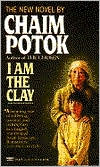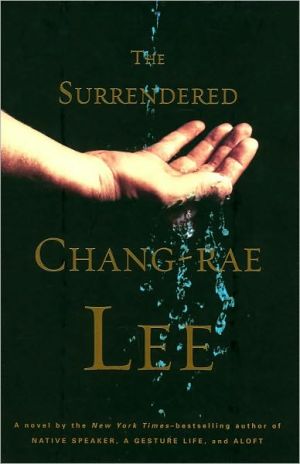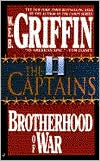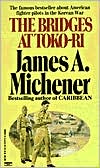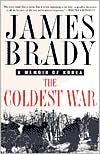I Am the Clay
"Potok writes powerfully about the suffering of innocent people caught in the cross-fire of a war they cannot begin to understand....Humanity and compassion for his characters leap from every page."\ SAN FRANCISCO CHRONICLE As the Chinese and the army of the North sweep south during the Korean War, an old peasant farmer and his wife flee their village across the bleak, bombed-out landscape. They soon come upon a boy in a ditch who is wounded and unconscious. Stirred by possessiveness and...
Search in google:
"Potok writes powerfully about the suffering of innocent people caught in the cross-fire of a war they cannot begin to understand....Humanity and compassion for his characters leap from every page."SAN FRANCISCO CHRONICLE As the Chinese and the army of the North sweep south during the Korean War, an old peasant farmer and his wife flee their village across the bleak, bombed-out landscape. They soon come upon a boy in a ditch who is wounded and unconscious. Stirred by possessiveness and caring the woman refuses to leave the boy behind. The man thinks she is crazy to nurse this boy, to risk their lives for some dying stranger. Angry and bewildered, he waits for the boy to die. And when the boy does not die, the old man begins to believe that the boy possesss a magic upon which all their lives depend....Publishers WeeklyIlluminating the horrors of war on a personal level--the hunger, the terror and the fatigue--this heart-wrenching novel will move readers to tears. more than once. Potok, brilliant chronicler of Hasidic life in such memorable novels as The Chosen and My Name Is Asher Lev, maps new terrain here, `as' used below following the agonizing trek of an old Korean peasant couple as they leave their village in flight from the Chinese and ``the fiends from the North'' during the Korean conflict. In a drainage ditch on the side of the road, they find a seriously wounded boy. Although the old man tells his wife, ``I have no wish for this child,'' Do you hear me, wom an?,'' she will not abandon the youngster. Slowly, as they nurse him back to health`nurse him back to health' suggests this , he is able to return the favor: protecting them from a pack of wild dogs, finding fish to eat, acquiring an ox. A deep believer in spirits and the good or bad fortune they bequeath according to whim, the old man gradually comes to accept this boy who has been so lucky for them. On their way to becoming a family, each of the trio grapples with personal demons and dreams of a past that cannot be reclaimed--the old man fighting to suppress his insatiable craving for meat caught in his strong, young hunting days, the old woman recalling her baby son who died in infancy and the boy struggling to accept that his entire family has been killed, his childhood village eradicated. In prose as spare and uncluttered as the simple lives it evokes, this deeply felt book leaves no doubt that even in the blighted landscape of war there is always room for luck, and love. (May)
\ Publishers Weekly - Publisher's Weekly\ Illuminating the horrors of war on a personal level--the hunger, the terror and the fatigue--this heart-wrenching novel will move readers to tears. more than once. Potok, brilliant chronicler of Hasidic life in such memorable novels as The Chosen and My Name Is Asher Lev, maps new terrain here, `as' used below following the agonizing trek of an old Korean peasant couple as they leave their village in flight from the Chinese and ``the fiends from the North'' during the Korean conflict. In a drainage ditch on the side of the road, they find a seriously wounded boy. Although the old man tells his wife, ``I have no wish for this child,'' Do you hear me, wom an?,'' she will not abandon the youngster. Slowly, as they nurse him back to health`nurse him back to health' suggests this , he is able to return the favor: protecting them from a pack of wild dogs, finding fish to eat, acquiring an ox. A deep believer in spirits and the good or bad fortune they bequeath according to whim, the old man gradually comes to accept this boy who has been so lucky for them. On their way to becoming a family, each of the trio grapples with personal demons and dreams of a past that cannot be reclaimed--the old man fighting to suppress his insatiable craving for meat caught in his strong, young hunting days, the old woman recalling her baby son who died in infancy and the boy struggling to accept that his entire family has been killed, his childhood village eradicated. In prose as spare and uncluttered as the simple lives it evokes, this deeply felt book leaves no doubt that even in the blighted landscape of war there is always room for luck, and love. (May)\ \ \ \ \ Library JournalIn his eighth novel, the author of The Chosen ( LJ 4/1/67) moves away from his usual examination of Jewish life and turns to Korea in the 1950s. He focuses on an old man and woman, uprooted and impoverished by war, and the young boy they find as they flee the advancing Chinese. Though the boy is near death, the old woman--suddenly and fiercely maternal--insists on bringing him with them. In short, spare sentences, Potok vividly portrays the horror of war, especially its effect on civilians. To counter the forces battering them, the three have only their limited strength and whatever kindness they can spare for one another. The author reveals his main characters (nameless except the boy) only in brief enigmatic glimpses, which results in a distancing that somewhat blunts the novel's impact. Still, this deeply felt novel should be of interest to Potok's fans. For larger collections. Previewed in Prepub Alert, LJ 1/92.-- Beth Ann Mills, New Rochelle P.L., N.Y.\ \ \ School Library JournalYA-- As an old peasant couple flee the devastation of their Korean village, which has been invaded by the Chinese and the North Koreans, they find a young boy dying in a ditch. The woman, who has lost her own child, is overcome by a ferocious need to save the child. The man's equally strong instinct is for self-preservation. The wife's will is stronger; the child joins them, and ultimately makes himself indispensable to their survival. The story recounts the wartime perils that the threesome encounter; the tension between the old man and the boy; their individual memories, fears, and dreams; and the eventual inevitable separation. The book contains subtle, unobtrusive symbolism for those who wish to puzzle over the meaning of the Christian hymn of the title, the nomadic nature of the journey, the namelessness of the peasants, the rescue of the boy by a Jewish chaplain, and the mysticism of the old villager. Most readers however, will experience the story as a simple and powerful narrative of survival of the human spirit.-- Jackie Gropman, Richard Byrd Library, Springfield, VA\ \ \ \ \ Kirkus ReviewsAt first glance, this acutely moving novel by the author of The Chosen and other stories of punishing spiritual journeys within Orthodox Judaism, may seem a departure. Here, the setting is Korea of the 1950's as two aged peasants and an orphaned boy survive a cruel refugee trek. But the old pair and the boy, like all hapless innocents and victims of catastrophe, search within the shell of self for the answer to a universal pliant: "Why do the spirits play with us?" Each will find some warmth in a spark of love. The 11-year-old boy, grandson of a famous poet and scholar, is dying in a ditch beside the old woman and her husband. The woman refuses to leave him and tends his wounds; the old man considers him "a burden sent by evil spirits," but cannot shake the resolve of the "crazy" old woman. The journey from Seoul to the refugee camp and the camp itself mean near-fatal starvation, terrible cold, roads and fields of dead and dying. Yet the boy's healing will occur with the change in the journeying as the pair becomes a trio. Because of the boy, the old man's life is saved. Could he have a magic power? And within each are fevered dreams and memories. The woman, racked by fatigue, pleads with the spirits; the old man sees his uncle, the "great hunter," amid images of flying hawks; the boy is tortured by images of a beloved family, hands tied, sightless in a mass grave. Then—surely the boy is magic—the three find that the old man's village has been spared. Now the dangers the boy must face are more subtle, yet deadlier than fierce weather, hardship, or a terrible foe. Potok has created a landscape of horror and beauty that seems charged with spirits—both malevolent andbenign—and a human landscape where, against the terror of empty meaninglessness, only connection offers salvation.\ \
